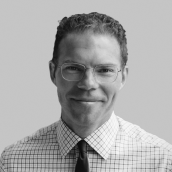
Greg Lindsay is Director of Applied Research at NewCities.
If last year saw the advent of pervasive remote work and “nomad visas” amid a scramble to secure Covid-free havens, then 2021 will be the year savvy governments begin to harness post-pandemic migration opportunities as the driving force for economic recovery and development. Destinations ranging from Helsinki to Dubai in terms of climate and temperament are already drafting programs and policies targeting footloose talent whose employers have given them permission to roam. These initiatives go far beyond nomad- or even golden visas to encompass free workspace, health- and childcare, and even cash bonuses or promises of investment. Suddenly, it’s a race to the top, with the winners offering the most attractive (and extensive) packages.
It should come as no surprise that Dubai is at the forefront. The emirate’s own Remote Work Visa was approved by the UAE cabinet on March 21, following January’s amendments allowing the granting of citizenship “to investors, specialized talents & professionals including scientists, doctors, engineers, artists, authors and their families,” as tweeted by Dubai ruler Sheikh Mohammed al Maktoum at the time. Both measures, along with a raft of earlier reforms, are aimed at reviving a city-state that lost 8.4% of its population last year, according to Standard and Poor's. The likely next phase: an official “vaccine tourism” campaign replacing the whisper network among the globally well-connected.

Meshing the machinery of the state with the economic interests of ‘Dubai Inc.’ has always been the emirate’s modus operandi and its post-pandemic strategy is no different. "With remote work technologies today, we provide an opportunity for everyone to live in the most beautiful and safe cities in the world,” Sheikh Mohammed explained in a series of tweets. “The UAE is a global economic capital…and all our decisions will be based on this vision.”
At the opposite end of the spectrum is Finland, where the Helsinki Business Hub unveiled its ’90 Day Finn’ program offering a few fortunate remote workers complete visa-, housing-, and childcare arrangements — what it calls “city-as-a-service” — along with a glide path to permanent residence. Explicitly aimed at tech nomads from Silicon Valley, the program is presented in direct opposition to golden visas and similar programs. (“We’re not after your money but all about lasting relationships”, the promotional copy teases.) It underscores the philosophical difference between investment migration and remote work visas, and how the latter is playing a longer (although less certain) game of talent attraction, startup formation, and growth rather than revenue upfront.
It’s also worth noting how the Finns position themselves. Unlike Dubai (or its American analog, Miami), they do not boast of beaches, low taxes, and minimal regulations. “Live in a city where everything simply works”, they promise. “Secure a free top-class education for your children.” Whichever proposition personally sounds more appealing, the ballooning number of programs — now more than 20 worldwide — means in-demand nomads will find a destination that resonates with their own inclinations, whether financial, political, or cultural. Another fascinating example is Taiwan’s “gold card” employment visa, which has drawn back home thousands of entrepreneurs to remote work (and play) within its bubble of normality.
These are just the beginnings, as an entire suite of services — even entire communities — emerge globally to cater to itinerant workers. In Portugal, for instance, the government-backed Startup Madeira has launched a pop-up ‘Nomad Village’ offering a one-stop website to assist with booking accommodation. As Barbados, the Bahamas, St. Lucia, Bermuda, and Antigua have already discovered, remote work is the new tourism.
Whether it will become an economic pillar in its own right remains to be seen, but one thing is clear: any global destination without one is at risk of being left behind when the world opens again.
References
“90 Day Finn.” Helsinki Business Hub. Helsinki Business Hub, January 28, 2021.
“90 Day Finn Terms and Conditions.” Helsinki Business Hub. Helsinki Business Hub, November 17, 2020.
Abu Omar, A, and S Mathew. “Dubai Suffered Steepest Population Drop in Gulf Region, S&P Says.” Bloomberg. Bloomberg L.P., March 22, 2021.
Cornish, C. “How Global High Flyers Get Vaccinated in the UAE.” Financial Times. The Financial Times Ltd, March 9, 2021.
“Digital Nomads Madeira Islands.” Startup Madeira. Startup Madeira, December 3, 2020.
HH Sheikh Mohammed. Twitter Post. January 30, 2021.
HH Sheikh Mohammed. Twitter Post. March 21, 2021.
“Home.” DIGITAL NOMADS Madeira Islands, March 9, 2021.
Kerr, S. “UAE Introduces Secular-Leaning Reforms to Reassure Expats.” Financial Times. The Financial Times Ltd, November 8, 2020.
Maxwell, C. “UAE to Issue Residency Visas for Remote Work.” The National News. The National, March 22, 2021.
Qin, A, and Chien, AC. “Covid? What Covid? Taiwan Thrives as a Bubble of Normality.” The New York Times. The New York Times Company, March 13, 2021.
“Rent European Apartments, Bedrooms & Coliving Spaces.” NomadX. NomadX, 2021.
Stott, M. “Remote Workers Tap Scheme to See Out Pandemic in Caribbean.” Financial Times. The Financial Times Ltd, February 5, 2021.